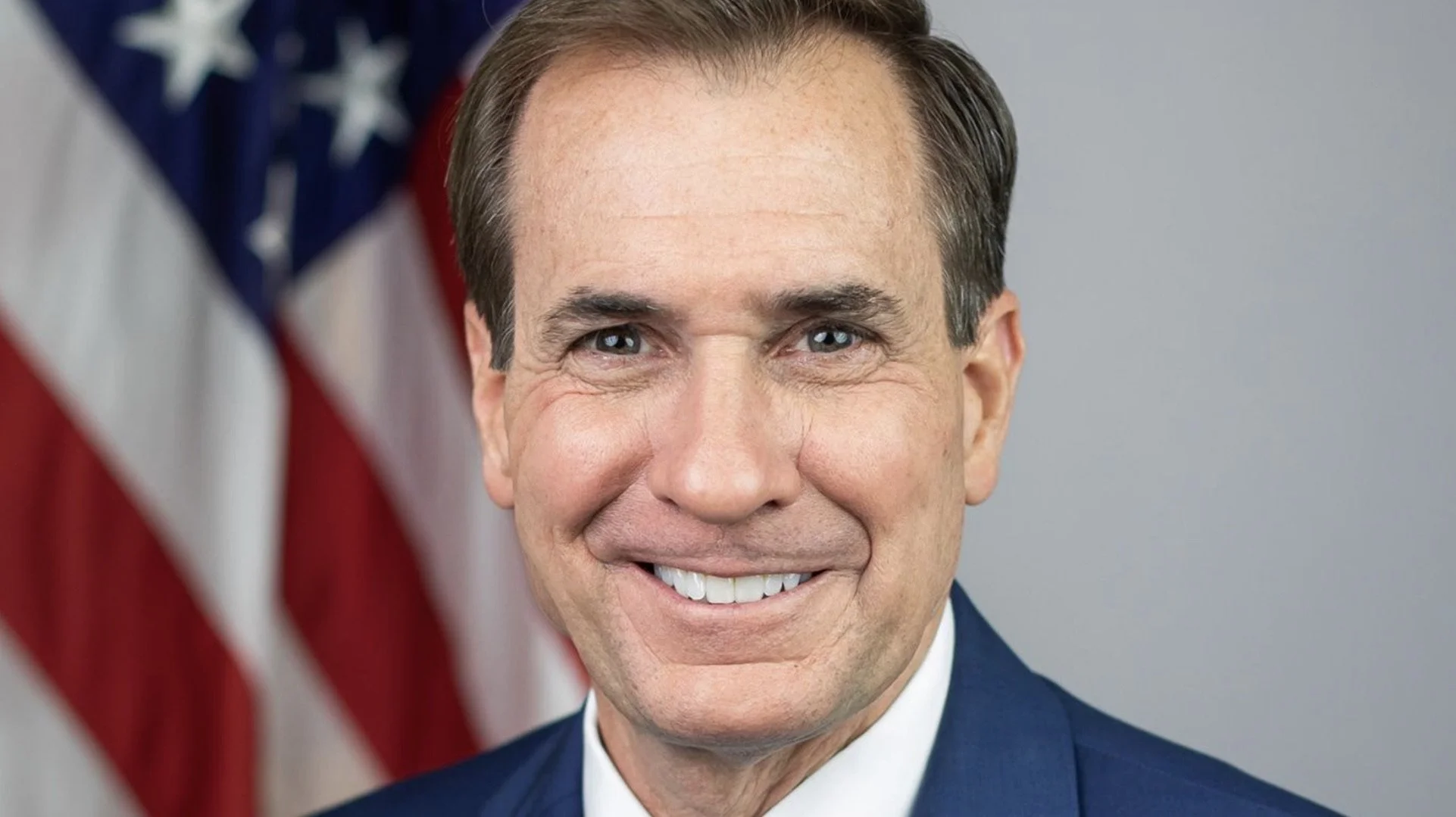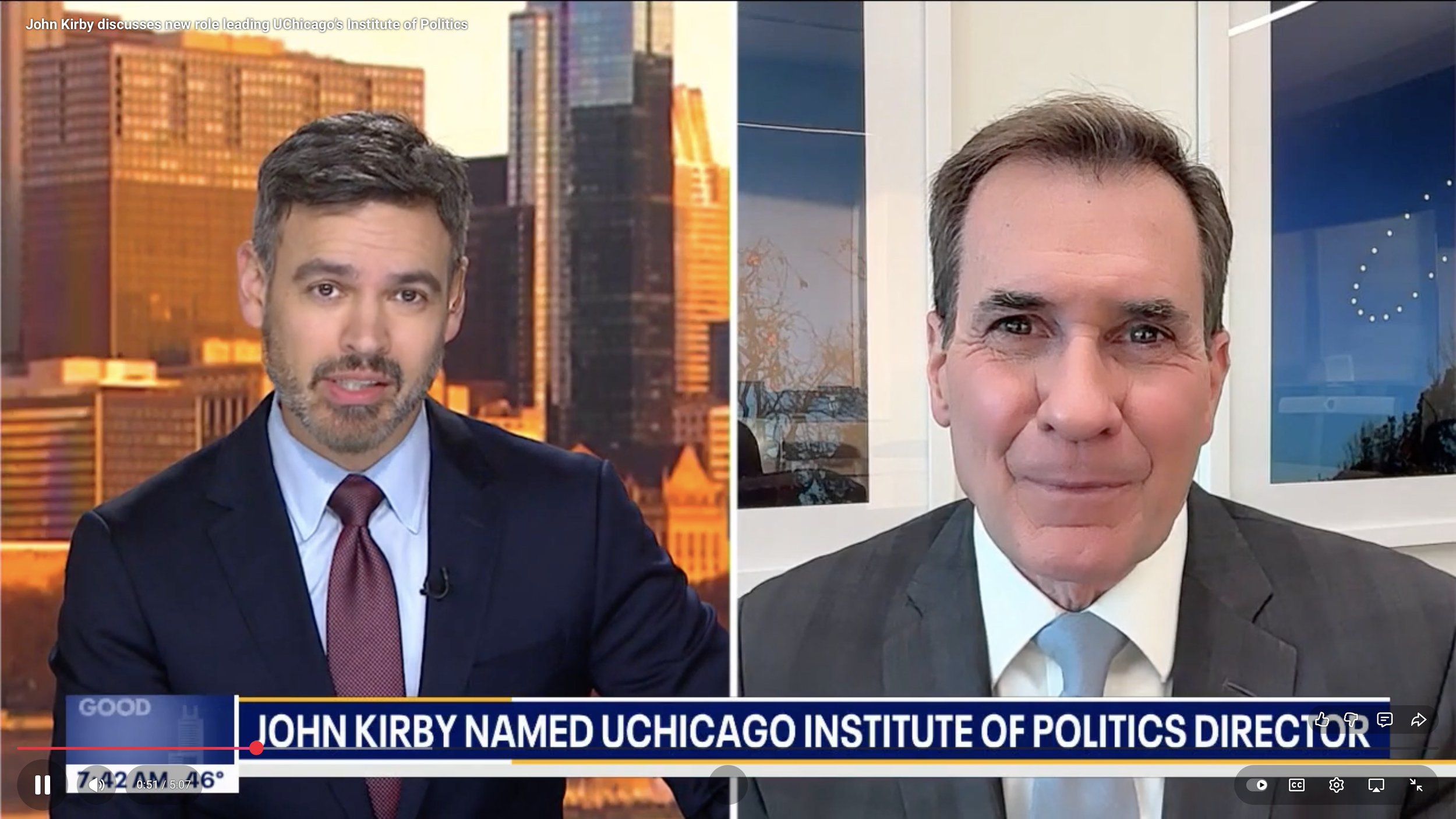HYED PARK HERALD: CAIR-CHICAGO, “Genocide Denier-in-Chief” John Kirby tapped to head IOP
The University of Chicago has appointed former military and government spokesperson John Kirby as the next director of its Institute of Politics (IOP), a decision that has drawn some criticism from student and advocacy groups over his record defending U.S. policy in Gaza.
Kirby, a retired rear admiral in the U.S. Navy who served as a senior spokesperson for the Pentagon, the State Department and the White House, will begin in the role on Nov. 15. He succeeds Heidi Heitkamp, a former U.S. senator from North Dakota who led the center from 2023 to 2025.
“I just have such great respect for everything that the Institute of Politics represents — the devotion to free expression, and to dialogue and to civic engagement,” Kirby said in an interview. “It’s a crown jewel. I think the school and the institute both represent something that I think right now is critically important in this divided country of ours — this ability, this need to have civil discourse and agreeable disagreements.”
The IOP, founded in 2013 by former President Barack Obama’s campaign strategist David Axelrod, is a nonpartisan center for civic engagement and civil discourse that encourages student exploration into careers in public service, politics, journalism and other institutions of democracy. Its programs include a paid internship network, leadership and civic engagement workshops, a fellows program that brings policymakers and journalists to campus, and a speaker series featuring figures from across the political spectrum.
Axelrod, who chairs the institute’s board of advisors, celebrated Kirby’s appointment in an Oct. 20 news release.
“He’s a thoughtful, proven leader, whose lifelong devotion to service, extraordinary experience, and demonstrated commitment to constructive dialogue completely align with our values and mission,” Axelrod said in a statement. “We are very lucky to have him.”
Kirby’s long career in defense and foreign policy communications has made him one of Washington’s most recognizable public briefers.
He served as a spokesperson for the military and under Presidents Barack Obama and Joe Biden. While serving as the Biden administration’s National Security Council spokesperson, Kirby became the White House’s point person on the wars in Ukraine and Gaza. He drew both criticism and praise for his public defense of U.S. policy toward Israel, including his rejection of describing Israel’s military actions in Gaza as “genocide.”
His appointment has already drawn mixed reaction in Chicago. The Council on American-Islamic Relations’ Chicago chapter has publicly urged the U. of C. to rescind the decision, calling Kirby Biden’s “Genocide Denier-in-Chief” and accusing him of excusing Israeli military actions in Gaza, which Palestinian authorities say have killed more than 68,000 people since Hamas’ Oct. 7, 2023 attack on Israel that killed about 1,200 people. The campus group Students for Justice in Palestine published an op-ed in the Maroon last week, arguing that the appointment contradicts the university’s stated commitments to neutrality and free expression.
The university did not respond to the Herald’s request for comment on the backlash as of press time.
In a statement responding to these criticisms, Kirby said his role was to represent the United States government and that he welcomed the discourse.
“One of the things that I look forward to, and I was attracted to about the IOP, is its dedication to free expressions and to civil discourse, and to providing a forum where all different views can be heard,” he said. “I certainly respect the views of others.”
In the Herald interview, Kirby said he did not have immediate plans to change the institute’s programs. In an interview with Fox 32 Chicago, he did say he hopes to introduce more discussion about national security.
FOX NEWS
“I won’t pretend to you that I have a very firm and detailed agenda,” Kirby told the Herald. “My focus in the first few months is really going to be to listen and to learn and to engage the staff — to make sure that I understand what they need from me and what their challenges are.”
He’s pleased with the speakers the IOP brings in, saying “I think they do it right. They’re inclusive, they’re energetic in how they pursue speakers, and how they pursue events. And they’re bipartisan, and I think that’s really important.”
“It’s important that all voices are heard and that the students have an opportunity to challenge themselves, to challenge the speakers as appropriate, to challenge ideas,” he added.
Asked about the role of the IOP amid heightened protest in the city, particularly in response to the ongoing federal immigration crackdown, Kirby said the institute supports the right to protest and provides a platform for conversations.
“You have to have a firm understanding of what makes our democracy special, what makes this country so wonderful, and that means being able to challenge what your government is doing and being able to challenge what policies are being pursued, and to feel safe and secure in doing that,” he said.
Regarding the university’s ongoing budget challenges and cuts, Kirby said he hasn’t yet reviewed the center’s budget.
Kirby has also taught at Georgetown University and worked as a military and diplomatic analyst for CNN. He holds a bachelor’s degree in history from the University of South Florida, a master’s in international relations from Troy University and a master’s in national security studies from the U.S. Naval War College.
He said he’s “thrilled” to move to Chicago, a climate very different from that of his hometown in the Tampa Bay area. He said he loves the city’s sports teams and its parks system.
“When I was a kid, my father wanted all of us boys to join the military. He believed that we owed something back to the country, and that’s what public service is all about,” Kirby said. “But obviously there are so many other ways to do that, and I really think we’re at a time in the country where public servants are so critically important to our democracy.”
For him, accepting the role of director of the IOP is a form of public service.
“I’ve mentored young people my whole life and helped grow and develop young talent, whether it’s in the Navy or in those other institutions I served in, but I’ve always learned more from them than I’ve been able to give back,” Kirby said.



